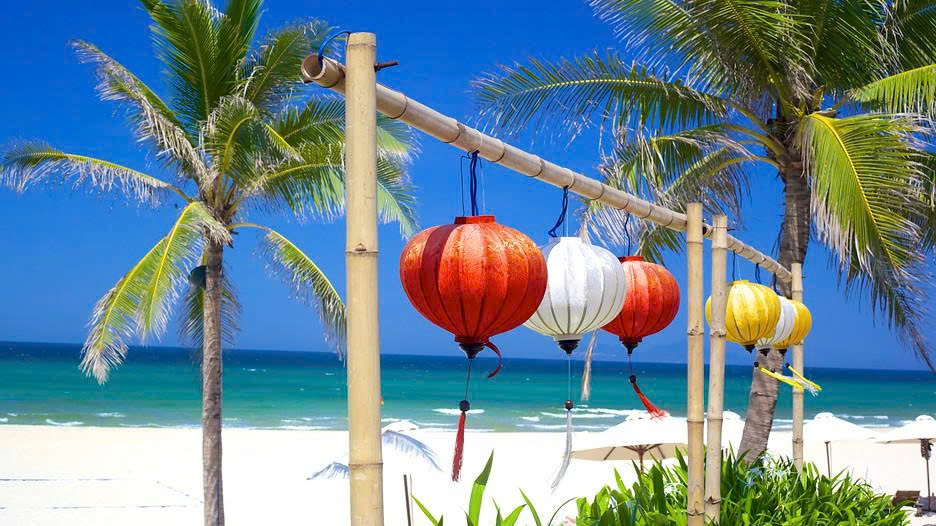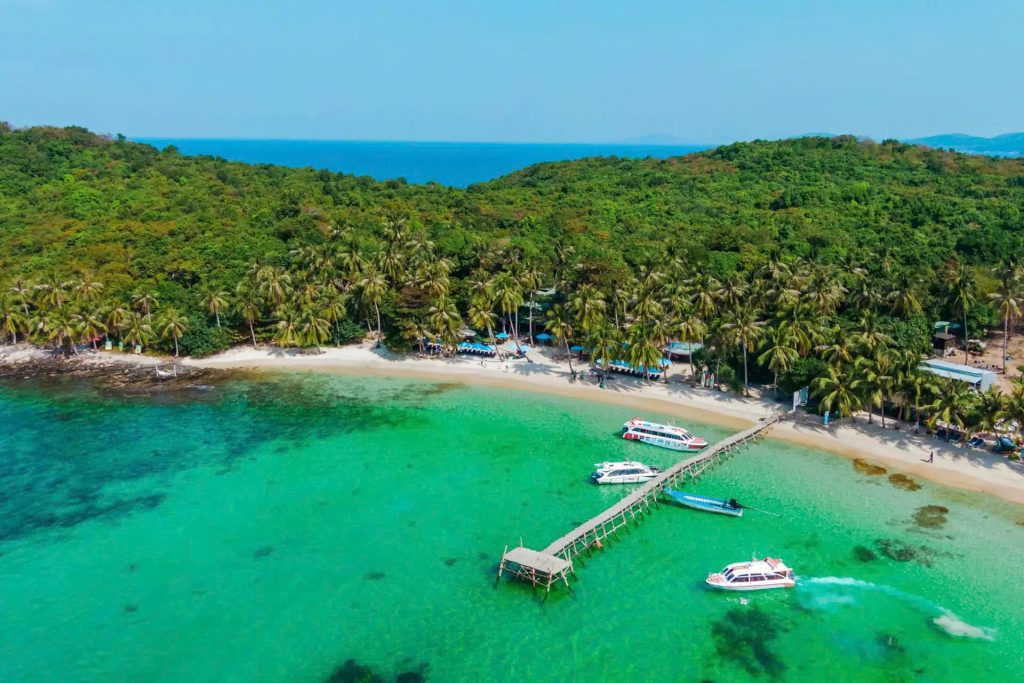Dreaming of an extended stay in Vietnam as a digital nomad? Fantastic! This guide is your ultimate resource for navigating the exciting, yet sometimes complex, world of long-term rentals in Vietnam. From choosing your ideal city to signing a lease, we’ll cover everything you need to find your perfect home away from home, ensuring a smooth and productive remote work journey.
1. Why Vietnam is the Ideal Long-Term Base for Digital Nomads in 2025
Vietnam continues to solidify its reputation as a top-tier destination for remote workers. Its allure in 2025 stems from a compelling mix of factors:
Unbeatable Affordability & Lifestyle: Enjoy a high quality of life with significantly lower costs for accommodation, food, and daily expenses compared to Western countries. Immerse yourself in a rich, vibrant culture with diverse landscapes, from bustling cities to serene coastal towns.
Thriving Digital Nomad & Expat Communities: Connect with like-minded individuals, share experiences, and find support in established communities across major cities.
Modern Infrastructure & Connectivity: Reliable internet and readily available coworking spaces make sustaining your remote career seamless.
2. Choosing Your Digital Nomad Hub: Top Cities for Long-Term Stays
Your ideal long-term rental location in Vietnam largely depends on your lifestyle preferences.
Ho Chi Minh City (HCMC)

- Pros: The most dynamic and international city, offering an endless array of food, entertainment, and networking opportunities. Largest expat community.
- Cons: Can be overwhelming with traffic; generally higher rental costs than other cities.
- Popular Districts: District 1 (central, vibrant), District 2 (Thao Dien) (expat-friendly, quieter, Western amenities), Binh Thanh District (local feel, good value, close to D1).
Hanoi

- Pros: Rich in history and charm, with a more traditional Vietnamese atmosphere. Slightly lower cost of living than HCMC.
- Cons: Colder winters; potentially fewer modern amenities compared to HCMC.
- Popular Districts: Tay Ho District (expat hub, lakeside living), areas near the Old Quarter (cultural immersion, bustling).
Da Nang

- Pros: A beautiful coastal city with a relaxed vibe, clean beaches, excellent infrastructure, and a rapidly growing digital nomad scene. Great work-life balance.
- Cons: Can feel less “bustling” than Hanoi or HCMC, though it’s growing fast.
- Popular Areas: The An Thuong area (close to beach, many expat amenities, cafes).
Other Emerging Cities:
- Hoi An: Charming ancient town, slower pace, great for short-term getaways, but fewer long-term options.
- Da Lat: Cool climate, scenic mountains, a unique escape from the heat, but smaller digital nomad scene.
3. Types of Long-Term Rentals Available for Digital Nomads
Vietnam offers a range of accommodation types to suit different budgets and preferences.
Serviced Apartments:
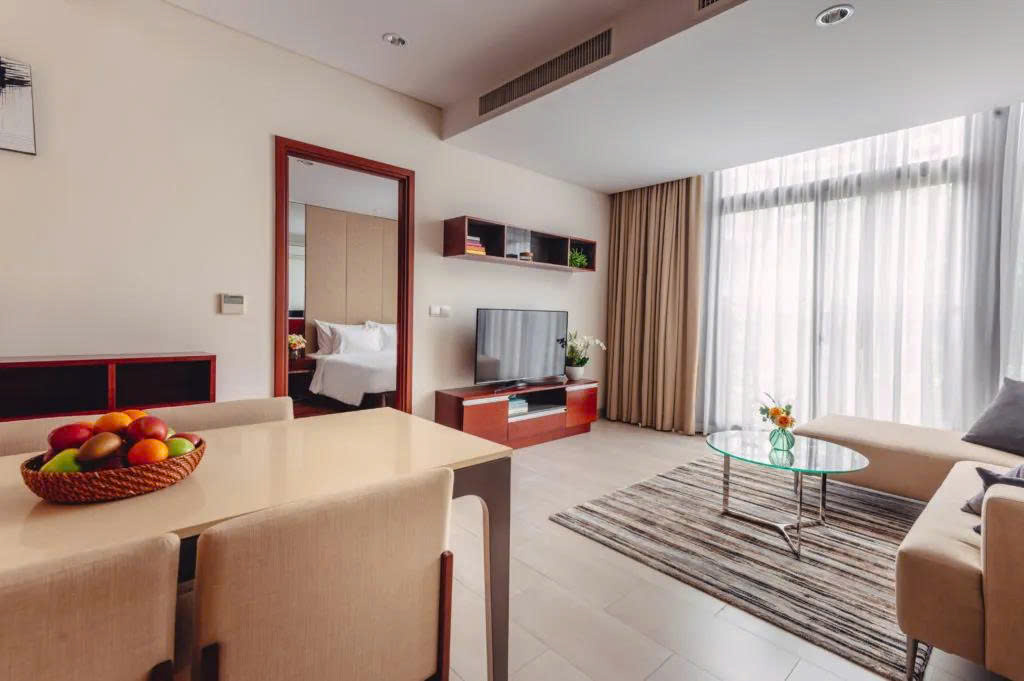
- Pros: Fully furnished, includes utilities (electricity, water, internet), cleaning services, security, and often amenities like gyms and pools. Hassle-free living.
- Cons: Generally the most expensive option.
Unfurnished or Partially Furnished Local Apartments:
- Pros: More affordable, greater flexibility to personalize your space.
- Cons: You’ll need to set up utilities yourself, which can be challenging without local language skills. May require furnishing.
Co-living Spaces:
- Pros: Designed for digital nomads, offering private rooms with shared common areas. Built-in community, often includes utilities and high-speed Wi-Fi.
- Cons: Less privacy than a full apartment, potential for varying housemate dynamics.
Guesthouses & Homestays (with long-term rates):
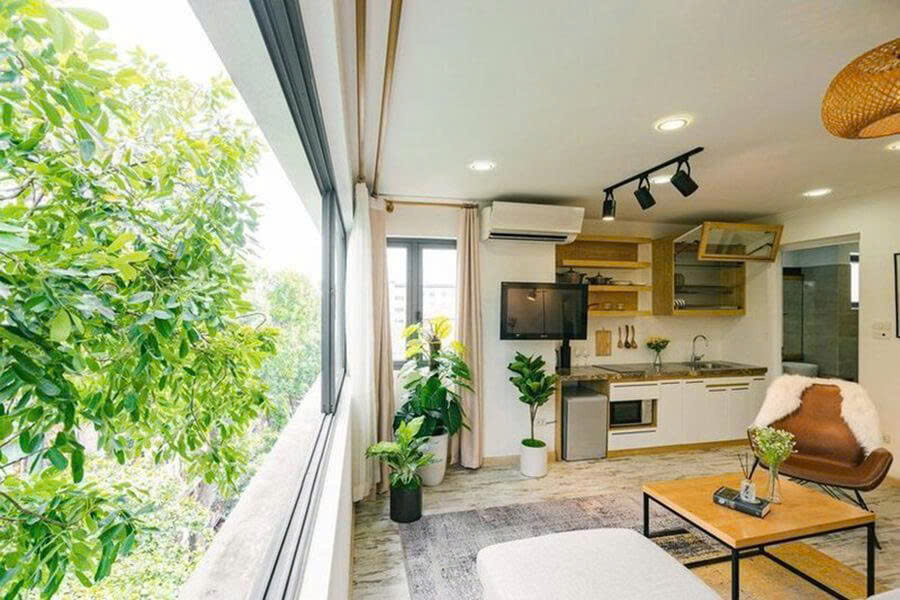
- Pros: Very affordable, often run by local families, offering an authentic cultural experience.
- Cons: Can lack dedicated workspace, internet quality might vary, less privacy.
Houses/Villas:
- Pros: Ample space, great for groups or families.
- Cons: Significantly higher cost, requires more management (e.g., gardening, maintenance).
4. Where and How to Search for Your Long-Term Rental
Finding a good long-term rental requires a strategic approach.
Online Platforms & Social Media:

- Facebook Groups: This is arguably the most effective channel. Search for groups like “HCMC Expats & Digital Nomads Housing,” “Da Nang Digital Nomads & Expats,” or “Hanoi Housing for Expats.” Landlords, agents, and departing tenants post listings daily.
- Local Listing Websites: Sites like com.vn are popular but often in Vietnamese. Some specialized expat rental sites exist for specific cities.
- International Rental Portals: Sites like Airbnb or Booking.com can be used for initial short-term stays, then you can negotiate a long-term rate directly with the host if you like the property.
- Direct from Buildings: Walk around neighborhoods you like; many apartment buildings or serviced apartment complexes will have “For Rent” signs with contact numbers.
- Local Real Estate Agents:
- Pros: Agents have access to a wider range of listings, can help overcome language barriers, and assist with contract negotiations.
- Cons: They charge a fee, typically equivalent to one month’s rent (this fee is often paid by the landlord, but clarify who pays before proceeding).
- Finding Reputable Agents: Ask for recommendations within expat Facebook groups or through coworking spaces.
- Word-of-Mouth & Networking: Connect with other digital nomads, expats, and locals. Someone might know of an available unit or an honest landlord. Networking at coworking spaces is excellent for this.
5. The Rental Process: Step-by-Step for Foreigners
Once you find a place you like, understanding the process is key.

Initial Contact & Viewing:
- Be prepared with questions: What utilities are included? What’s the internet speed? Is the neighborhood noisy? How is security?
- Take photos or videos during your viewing to remember details and for reference.
Lease Agreements & Contracts:
- CRUCIAL: Insist on a contract written in both Vietnamese and English. Do NOT sign anything you don’t fully understand.
- Key clauses to check: Rent amount, deposit, payment schedule (usually monthly), contract duration (e.g., 6 months, 1 year), termination clauses, maintenance responsibilities, and force majeure.
- Consider getting a local friend or a trusted translator to review the contract with you if you’re unsure.
Deposit and Payment:
- A common deposit is 1 to 2 months’ rent, usually refundable if no damage occurs.
- Most landlords prefer cash or bank transfers for rent payments.
Utility Setup & Bills:
- Clarify how electricity, water, and internet bills are handled. Sometimes they are included in rent, but often they are extra, based on consumption.
- Ask about any building management fees.
Temporary Residence Registration:
- Your landlord is legally obligated to register your temporary stay with the local police. This is a vital step for foreigners and ensures your stay is compliant. Confirm this with your landlord.
RELATED: How to Find Long-Term Rentals in Vietnam as a Digital Nomad
6. Essential Tips & Considerations for Digital Nomads

Beyond the paperwork, these practical tips will enhance your long-term rental experience.
Location, Location, Location: Prioritize proximity to coworking spaces, cafes, gyms, supermarkets, and public transport or easy Grab access. Consider noise levels; Vietnamese cities can be vibrant and loud, even at night.
Internet Connectivity: Explicitly ask about the internet speed and provider before signing. If possible, test it yourself. Having a fast and reliable connection is critical for remote work. Always have a mobile data SIM card as a backup for internet outages.
Furnishings & Amenities: Confirm what appliances and furniture are included (AC, washing machine, fridge, basic kitchenware). Check for hot water, water pressure, and air conditioning functionality.
Security & Safety: Inquire about building security (guards, key card access) and overall neighborhood safety, especially for solo travelers.
Budgeting for All Costs: Factor in rent, deposit, utilities, internet, and any management fees when calculating your monthly budget.
Cultural Nuances & Communication: Patience and politeness are highly valued. A little effort to learn basic Vietnamese phrases can go a long way. Google Translate or other translation apps can be invaluable for communication with landlords or locals.
Align with Your Visa: Ensure your rental agreement duration aligns with your visa validity. Overstaying your visa has serious consequences, including deportation.
7. Common Challenges and How to Overcome Them
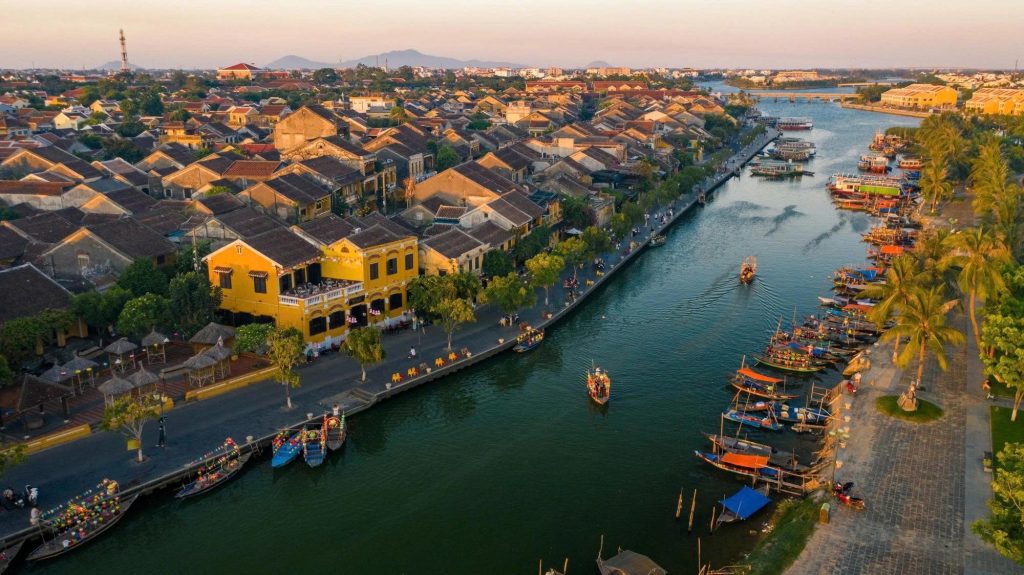
Language Barrier: Use translation apps, find an English-speaking agent, or ask a local friend for help.
Understanding Contracts: Never rush. Take time to read thoroughly, especially the English version, and ask questions.
Avoiding Scams: Be wary of deals that seem too good to be true. Don’t pay deposits before viewing the property. Use reputable agents or trusted online groups.
Initial Culture Shock: Be prepared for differences in living standards, noise levels, and social norms. Embrace the experience!
RELATED: Digital Nomad in Vietnam: Best Cities, Costs & Tips
Finding a long-term rental in Vietnam as a digital nomad is a manageable and rewarding process. By understanding your options, leveraging local resources like Facebook Groups and trusted agents, and being diligent with paperwork, you can secure a comfortable and affordable base. Vietnam’s blend of culture, connectivity, and cost-effectiveness makes it an outstanding choice for an extended remote work adventure.


